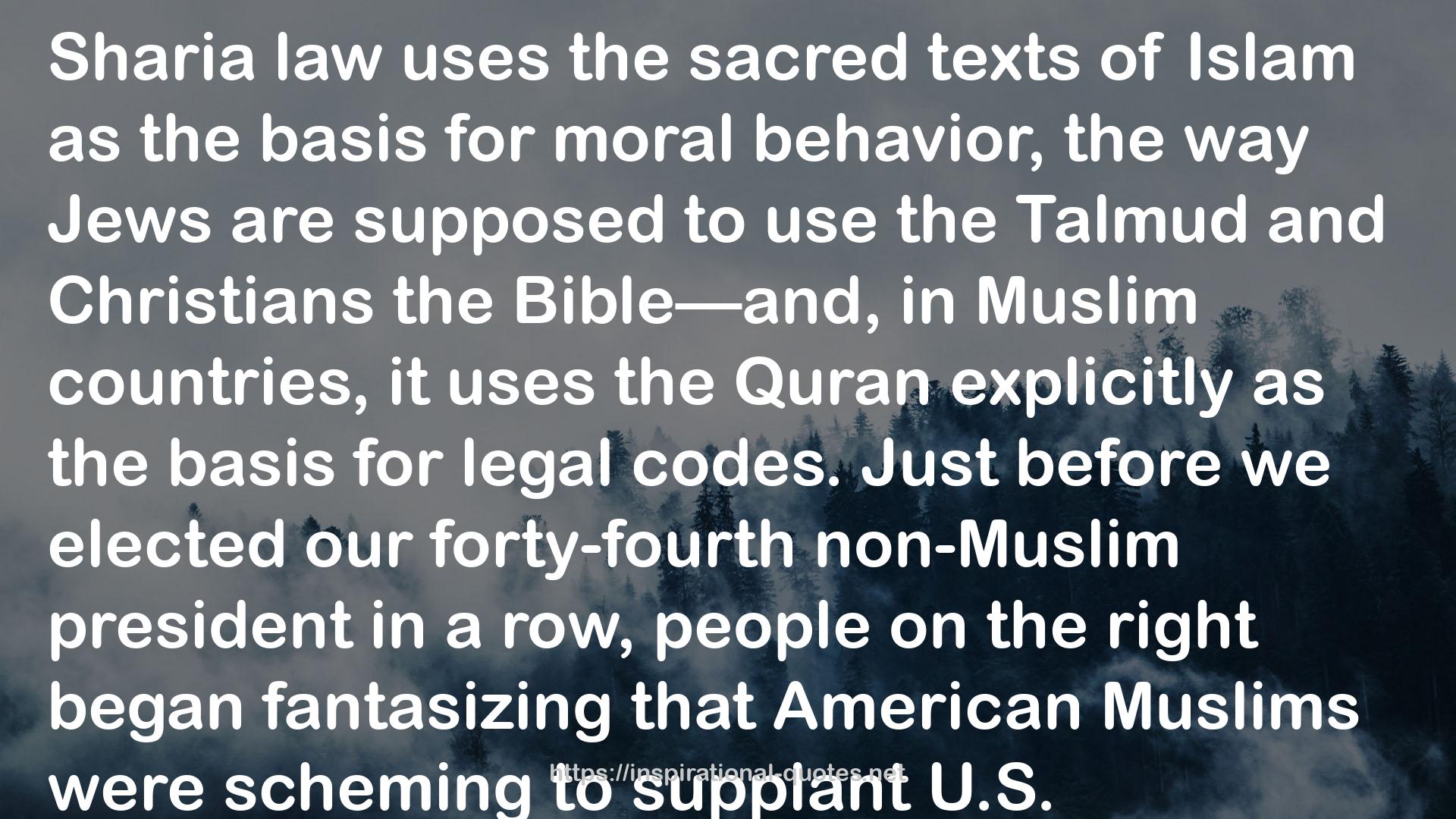" Sharia law uses the sacred texts of Islam as the basis for moral behavior, the way Jews are supposed to use the Talmud and Christians the Bible—and, in Muslim countries, it uses the Quran explicitly as the basis for legal codes. Just before we elected our forty-fourth non-Muslim president in a row, people on the right began fantasizing that American Muslims were scheming to supplant U.S. jurisprudence with Islamic jurisprudence. The definitive text is a 2010 book called Shariah: The Threat to America. Its nineteen authors included respectable hard-right conservatives and national security wonks. We’re “infiltrated and deeply influenced,” the book says, “by an enemy within that is openly determined to replace the U.S. Constitution with shariah.” The movement took off, and in short order the specter of sharia became a right-wing catchphrase encompassing suspicion of almost any Islamic involvement in the U.S. civic sphere. The word gave Islamophobia a patina of legitimacy. It was a specific fantasy—not I hate Muslims or I hate Arabs but rather I don’t want to live under Taliban law, and therefore it could pass as not racist but anti-tyranny. It was also a shiny new exotic term, a word nobody in America but a few intellectuals knew. "
― Kurt Andersen , Fantasyland: How America Went Haywire: A 500-Year History
